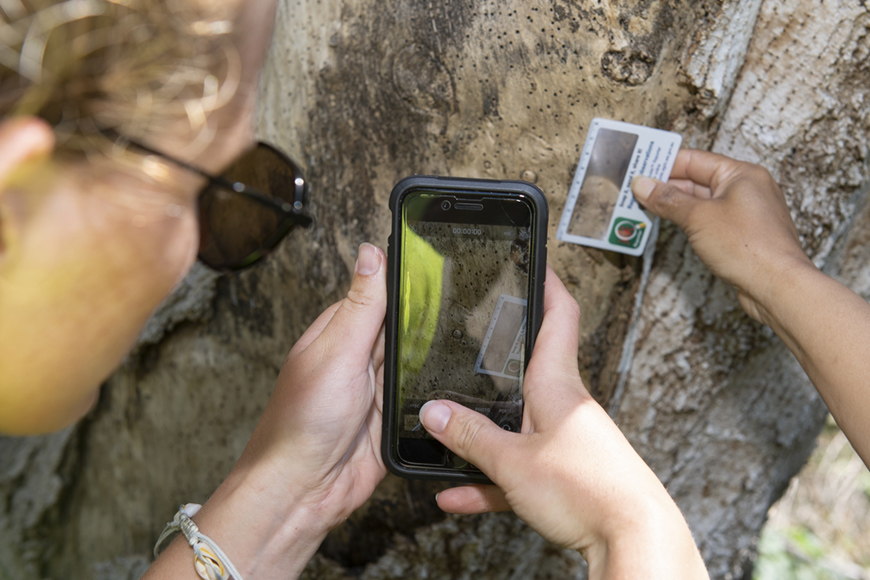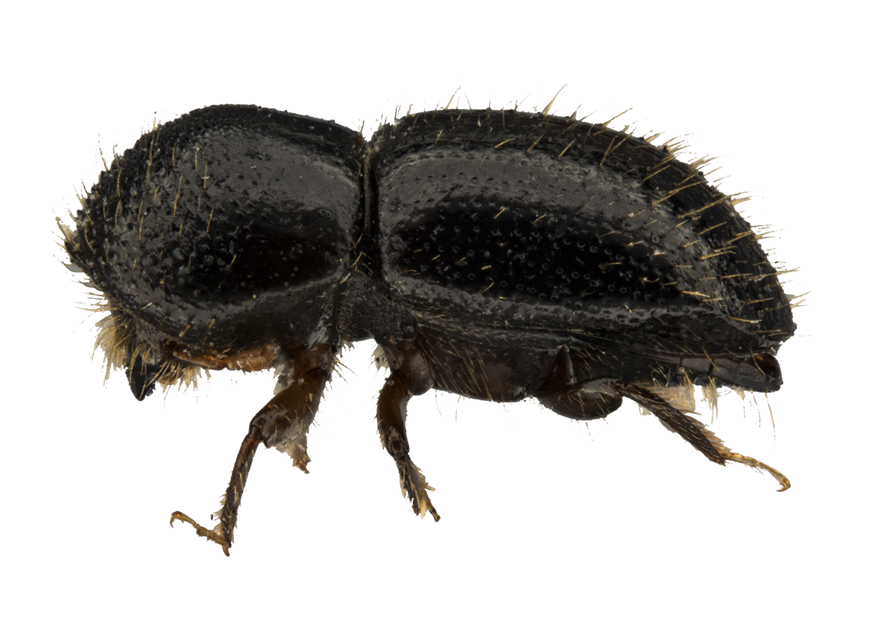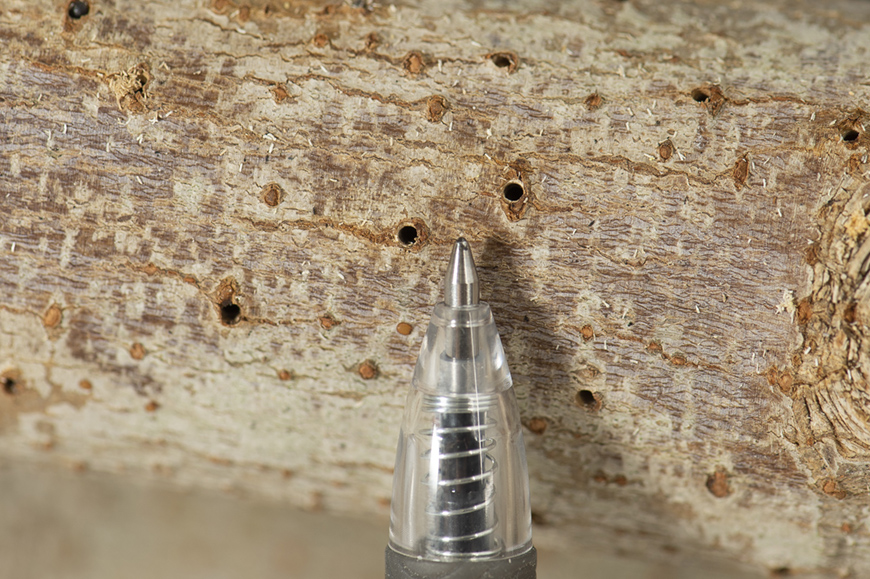Exotic beetle threat to Richardson Park trees
A non-native tree at Richardson Park in South Perth will be removed on Tuesday 18 April 2023 following detection of the Polyphagous Shot-Hole Borer (PSHB), an exotic beetle causing significant damage to trees across the metropolitan area.
The Department of Primary Industries and Regional Development (DPIRD) has requested removal of a Coral tree (Erythrina sykesii), as well as the removal of deadwood and infested limbs on several other Coral trees at Richardson Park, which is managed by the City.
How does the PSHB damage trees?
About the size of a sesame seed, PSHB digs tunnels in trees where they cultivate fungus as a food source. This fungus spreads in the tunnels disrupting the flow of water and nutrients. Trees damaged by PSHB can become a constant source of beetles that can spread and affect neighbouring trees.
PSHB can severely damage host trees, with some species dying within one to two years of infestation.
Why do the trees need to be removed?
No known effective chemical treatment options are available. Early detection and the prompt removal (including stump grinding) or pruning of infested trees is key to containing the spread of PSHB and minimising further impact on neighbouring trees.
The City of South Perth and DPIRD understand the value of trees to individuals and the community. Unfortunately, tree removal is necessary to control the spread of the pest and prevent the loss of even more trees.
How residents can help
Early detection is one of the best ways to manage the spread of this foreign pest and property owners are encouraged to assist DPRID teams that may need to inspect properties in the area.
It is also important to restrict the movement of certain materials, which can act as hosts or potentially spread the borer.
Residents are asked to check their trees and shrubs for signs of beetle holes and report to DPIRD via the MyPestGuide® app (Google Play Store and Apple iTunes Store), or to the Pest and Disease Information Service on 9368 3080 or email padis@dpird.wa.gov.au.
For information about what to look for, quarantine requirements and how to minimise the spread, please visit agric.wa.gov.au/borer.
- Provide locations of host trees, particularly Box elder maple (Acer negundo).
- Gardeners are encouraged to report suspect borer damage to the department through the Pest and Disease Information Service on 9368 3080, via the department’s MyPestGuide® app or email padis@dpird.wa.gov.au.
- Encourage friends and neighbours to report anything suspect.
- Visit agric.wa.gov.au/borer for information and links to training.
Images from top:
The MyPestGuide® app is a great way to report suspected sightings of PSHB; Using a pen or ruler in photos will help DPIRD assess the size of the bore holes; and PSHB adult female.



Department of Primary Industries and Regional Development
- Phone 9368 3080
- Email PSHB@dpird.wa.gov.au

